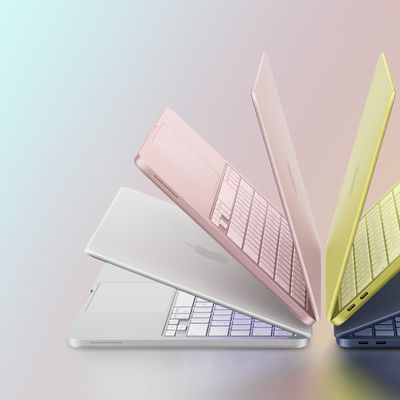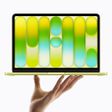In the time of the first Apple v. Samsung trial in 2011, Apple requested an injunction to prevent Samsung from selling its Galaxy line of smartphones and tablets within the United States. Apple stated that the 23 products in question violated three of its multitouch software patents, including the scroll-back, tap-to-zoom, and pinch-to-zoom patents. Judge Lucy Koh then denied Apple's request, stating there was no proof Apple would be damaged if Samsung was able to continue the sale of its products.

In November 2013 however, the U.S. Court of Appeals for the Federal Circuit ruled that Judge Koh would be required to reconsider her decision to not ban Samsung devices that infringed on Apple products. In December, Apple formally filed another motion calling for a U.S. ban on Samsung products.
Now, FOSS Patents reports that Judge Koh has denied Apple's new bid calling for a U.S. ban on Samsung products, stating that the company has not proved that its infringed upon patents drive consumer demand for Samsung devices.
To persuade the Court to grant Apple such an extraordinary injunction—to bar such complex devices for incorporating three touchscreen software features—Apple bears the burden to prove that these three touchscreen software features drive consumer demand for Samsung’s products. Apple has not met this burden.
The ruling comes ahead of a second patent lawsuit between Apple and Samsung set to begin on March 13, 2014. Notably, Samsung will only be allowed to have four patent claims to bring to the trial, as Judge Koh voided two of its patent claims in January. Apple will be able to bring all five of its patent claims to the trial.






















Top Rated Comments
What they have, are patents on the idea of doing a certain action right afterwards. Which is ridiculous anyway, since no one should be able to patent gesture ideas, any more than someone should be able to patent a new guitar chord.
However, as you pointed out, that's the sad state of software patents right now, so Samsung indeed did modify their code to supposedly not infringe in later devices.
Looking at history (see my Nov 2013 post (https://forums.macrumors.com/showthread.php?p=18412885)), almost every time Koh has allowed an injunction, it's backfired.
First, she allowed a pre-trial injunction on Samsung tablets. Oops, turned out that the jury said they did not infringe, so the injunction had to be lifted.
Then she allowed an injunction on a Nexus phone. Oops, appeals court reversed the injunction because it didn't meet a "causal nexus" requirement. That is, a patent on something that really made people choose which phone to buy.
Okay, so learning from the appeals court, she denied this current injunction request against Samsung phones because she didn't find a single causal nexus. Oops, the appeals court remands her decision to deny, adding onto their previous decision by now saying that a causal nexus could ALSO exist from an aggregate of patents.
And here we are. Apparently she did not find an aggregate causal nexus either.
Whew. It might be "good to be king", but sometimes it sucks to be a judge :)
.
First off, it's incorrect to use a word like "steal" in software patent cases, since there's almost never anything actually stolen. This is about infringement. Anyone can infringe without stealing code or seeing someone else's methods. Infringement is mostly about who manages to get a patent first. Which yes, is stupid in the case of software, but that's a different topic.
Secondly, Apple did prove infringement, but the devices that infringed haven't been sold in the US for years.
Thirdly, Samsung modified their code long ago to no longer infringe.
--
In short, this is NOT about any current infringement.
Instead, what Apple wanted was a ban precedent to use against any future infringements.
In other words, they want to be able to get injunctions based on what judges so far have seen as relatively minor (in relation to the entire device) consumer shopping points.
--
Apple's primary expert witness said his survey showed that consumers would pay an extra $400+ for a smartphone with just six "Apple features" included. ($40 just for bounceback, IIRC)
However, he did not convince that judge that people actually decide which phone to buy based on those features, since there are alternative features he did not offer, plus he didn't factor in supply and demand, etc.
And the judge is apparently correct about buyers, since tens of millions of people have indeed bought phones even without such fluff as the bounceback that Apple claims is worth so much that phones should be banned over it.
Moreover, as the ruling noted, "When the Court directly asked at oral argument, even Apple’s counsel could not represent that Dr. Hauser’s survey proves that the patented features drive demand for Samsung’s products."
TL;DR - Apple had wanted to set a precedent for future sales bans over relatively minor features, by first asking for a ban on old devices that are no longer sold. They did not convince the court that the minor features in question were the primary reason why Apple lost sales to Samsung.
.
The concept of patents is fine and sound.
It's the stuff that gets patented that makes same silly. Some patents are plain stupid and stifle innovation .
Yes, obvious to you, to most of the people both claims are wrong.